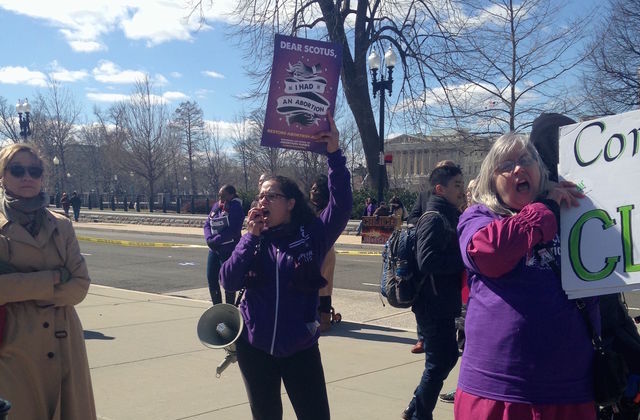Today (October 3), the House of Representatives passed a bill that bans abortion procedures after 20 weeks, with limited exceptions for rape survivors and when the pregnant woman’s life is in danger. The House has been proposing and voting on a variation of this ban for years, with similar bills passing in 2013 and 2015. But the Senate did not vote on the bills.
The latest iteration, titled H.R. 36: Pain-Capable Unborn Child Protection Act, passed 237 to 189, with two Democrats supporting it, and three Republicans voting nay. The bill essentially outlaws all abortions performed 20 weeks after fertilization. The exceptions for the life of the pregnant woman are outlined as follows:
In reasonable medical judgment, the abortion is necessary to save the life of a pregnant woman whose life is endangered by a physical disorder, physical illness, or physical injury, including a life-endangering physical condition caused by or arising from the pregnancy itself, but not including psychological or emotional conditions.
To qualify for the rape exception, adult women are required to obtain counseling and medical treatment for the rape 48 hours prior to the abortion. In the case of a minor who is pregnant as the result of rape or incest, the child must report the crime to a government agency or law enforcement. The bill also delineates additional requirements for procedures performed after 20 weeks because of these exceptions, and establishes criminal penalties for doctors who perform them outside of the conditions established by the bill.
Medical groups like the American College of Obstetricians and Gynecologists and Physicians for Reproductive Health oppose the bill. Reproductive rights and justice advocates are also against the bill, and additionally angered by the timing of this vote. From an emailed statment issued by the National Network of Abortion Funds, a group that raises money to help people who can’t afford to pay for their procedures:
The National Network of Abortion Funds is sickened that Congressional legislators have chosen the anniversary of Rosie Jimenez’s death, from an illegal abortion due to the Hyde Amendment, to put politics ahead of the healthcare needs of their constituents and try to once again unconstitutionally ban abortion at 20 weeks.
Rather than the 20-week ban, legislators could be voting to authorize funding to ensure 9 million children have health care access through the Children’s Health Insurance Program, or lifting the Jones Act to ensure families of Puerto Rico have unfettered access to food and supplies, or expanding Medicaid, or enacting legislation to curb mass shootings and domestic terrorism that leave families mourning loved ones daily. But they’d rather spend our tax dollars time pushing a bill with no future, reminding people seeking abortions that they will be stripped of their constitutional rights and are not valued in the United States of America.
Women of color and low-income women generally bear a disproportionate burden of additional restrictions on abortion, and research shows that young women and poor women are more likely to need this care later in their pregnancies. The vast majority of abortion procedures are performed before 20 weeks. But those who seek out the procedure later in pregnancy usually do so because of barriers to access including waiting periods, lack of Medicaid funding and having to travel long distances to reach health care providers.
The bill was introduced by Representative Trent Franks (R-AZ), who asserts that fetuses feel pain during abortion—an opinion that was much-repeated during the House’s discussion on the bill. But health care professionals are rebutting the claim with science. Dr. Daniel Grossman, a clinical and public health researcher on abortion and contraception, posted a Twitter thread today that addresses the basis of the bill:
Hi Rep. Trent Franks. I’m a researcher and abortion provider. This isn’t actual science. I’d be happy to educate you about it if you’d like. https://t.co/YPEKrhD32Z
— Dr. Daniel Grossman (@DrDGrossman) October 3, 2017
First, @RepTrentFranks, you should know that “late-term abortion” is not a medical term. At all. Anti-abortion advocates made it up.
— Dr. Daniel Grossman (@DrDGrossman) October 3, 2017
.@RepTrentFranks, you’ve mentioned “fetal pain” and I’d like to take the opportunity to educate you on it as well.https://t.co/kXkTkvb5jM
— Dr. Daniel Grossman (@DrDGrossman) October 3, 2017
Our best evidence indicates a fetus cannot perceive pain until the third trimester, 26 weeks, not 20-weeks.https://t.co/kXkTkvb5jM
— Dr. Daniel Grossman (@DrDGrossman) October 3, 2017
Experts say that if the Senate decides to vote on this bill, it’s unlikely to pass due to lack of sufficient support. Additionally, the legality of this potential law is uncertain given prior Supreme Court cases that have set the standard for what abortion regulations are considered constitutional.
